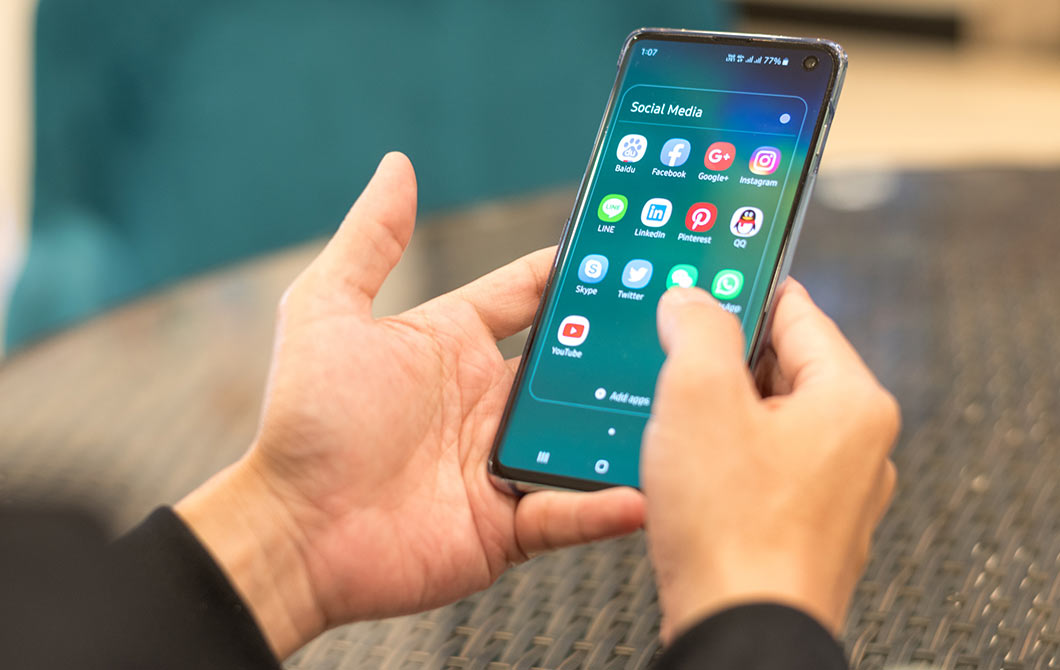Mobile Apps & Games Testing Services

Launching a new mobile app or game is only half the battle. Real success depends on how it performs across devices, networks, and locations worldwide.
At Global Telecom Testing, our mobile apps & games testing services make sure that your app or game delivers the same reliable experience for every user. With professional game testers conducting real-world checks under real conditions, we uncover the issues that automated tools miss. This approach allows us to deliver game testing services that keep your products competitive on a global scale.
What Is Mobile App Testing?
Mobile application testing involves validating the performance, functionality, and other technical features of a mobile application. This process is helpful when it comes to debugging the app for numerous issues, including:
- Functionality across different mobile devices
- Compatibility with numerous operating systems
- Assessing the ease-of-use for the graphical user interface (GUI) and user experience
- Report on processing speeds and other performance metrics
- Supporting the security and encryption of sensitive data

Game Testing Services in Real-World Conditions
Your mobile app or game encounters many different and constantly changing variables during real-world usage. Lab environments are places of perfect connectivity and up-to-date operating systems. That’s not the world your app or game is going to face once it leaves your lab.
In-country mobile app usability testing makes sure your app and/or game works in all real-world situations.
- Testing across a Range of Devices
The mobile device market is constantly expanding, bringing with it a range of screen sizes, resolutions, processing power, and potential issues. GTT enables you to test across all potential devices.
- Testing beyond the QA lab
With professional testers using a wide range of real devices under real-world conditions, you can help your mobile app work every time for every user, no matter where in the world they are.
- Outdated Software
Not everyone regularly updates their operating system. Some users might not even have access to the newest version. Verifying your app works on all operating systems (Apple, Android, Windows, etc.) and all versions (old and new) is imperative to your success.
- Location and Usability
Tap into the largest privately owned global footprint of local testers as they discover defects regularly missed by automated testing. Our mobile application QA testing professionals will live test your apps to discover any bugs and/or user-related issues.
- Load Testing
When many users attempt to download, load, and use your app or game simultaneously, slow load times or crashes can occur, causing many customers to abandon your app, game, or website for your competitors.

- Security & Penetration Testing
Protecting customer information, bank accounts, passwords, and other sensitive information is always one of your highest priorities. Mobile app penetration testing is necessary to make sure your application is not vulnerable to malicious attacks. This includes enabling certain functionalities and authentication measures to protect the security of your company and users.
- Cost
Most mobile app and game testing can be completed in 1-2 hours. Getting started with GTT is more affordable than you may think. Find out how GTT’s in-country testing services fit into your budget and save you money.
Contact us for pricing.
The Risk of Skipping Real Testing
The mobile app market has grown by 400% in the past 18 months, which makes accurate testing more important than ever. Yet finding a reliable mobile app testing service remains a challenge for companies worldwide. Research shows that three out of five apps and games fail at launch.
Companies invest vast amounts of time and money in development, but most testing relies on computerized methods. While convenient, this approach creates a false sense of security. Computerized testing alone is not thorough enough for a global release.
Without real-world, in-country usability and functionality testing, companies risk delays, extra costs, lost revenue, reduced market share, and damage to both the app’s success and the company’s reputation.


Global Telecom Testing Advantage
Global Telecom Testing is the only company in the world that utilizes in-country, local mobile app testing professionals to maintain the accuracy and reliability of mobile apps and games’ functionality and usability.
Our local app and game testers provide you with the security and reliability you need to avoid failures with mobile apps and games across 200 countries worldwide. Make sure your mobile app and games work in all real-world situations.
Our services include:
- Mobile apps & games testing
- Handset testing
- Network testing
- Operating system validation
- Language compatibility
- Location-based testing
We combine global reach with local expertise so your apps and games work everywhere. Our live and automated options, flexible billing, and unmatched global presence make us the trusted partner for companies worldwide.
Ready for Reliable Global Testing?
Partner with Global Telecom Testing today to access local game testers in 200+ countries and guarantee your mobile apps and games succeed in every real-world scenario.

Professional Mobile App Testing
Ensure the performance & usability of your mobile app with GTT
and say goodbye to bugs and quality assurance concerns.
Mobile App & Games Testing FAQs
Mobile app testing is vital before launch because it confirms functionality, usability, and performance across devices and platforms. Without testing, apps risk crashes, bugs, and poor experiences that damage adoption rates and reputation.
Thorough mobile apps & games testing checks how the app performs in real-world conditions across different operating systems, screen sizes, and network environments. A game tester examines critical factors such as navigation, responsiveness, compatibility, and stability under heavy usage.
Game testing services simulate scenarios across regions, languages, and devices to capture flaws early. This prevents costly fixes and poor reviews while delivering a smooth experience. Pre-launch testing builds trust, supports higher ratings, and lets developers release with confidence in global markets.
Both emulators and real devices play important roles in mobile app testing. Emulators allow for quick, cost-effective checks across various platforms, while real devices reveal the true user experience under practical conditions.
A game tester typically begins with emulators to simulate different models, operating systems, and screen dimensions. This approach is efficient for identifying surface-level issues early in development. However, only real devices can uncover challenges with battery usage, touch responsiveness, network interruptions, or location-based services.
By blending multiple methods, game testing delivers broad coverage and real-world validation. This hybrid approach uncovers early bugs and confirms functionality on actual customer devices. The layered strategy reduces risks, supports smoother launches, and maintains consistent performance across global markets.
Mobile app testing begins with functional and usability checks to confirm that features operate correctly and users can navigate smoothly. Performance is also reviewed across multiple devices, networks, and operating systems to replicate real-world use.
Mobile app and game testing goes beyond basic checks of login, payments, and notifications. Services also review interface design, screen compatibility, and stability under changing network conditions.
Testing also covers regional factors like language, currency, and regulations to validate adaptability. Large-scale simulations of global environments expose issues early, lowering risks and promoting lasting adoption with reliable, well-polished apps.
QA checks for apps and games focus on functional accuracy, performance efficiency, security protection, and localization quality. Each layer is essential to providing users with a seamless and trustworthy experience across platforms.
Functional testing checks navigation, buttons, and features. Performance testing measures speed, stability, and responsiveness under heavy use. Security audits review encryption, data handling, and vulnerabilities. Localization testing covers translations, cultural context, and region-specific design.
Testers verify each area to catch weaknesses before release. Structured plans cover the full scope, giving businesses confidence that their apps meet technical standards and engage global audiences securely and appropriately.
Performance metrics in mobile game testing include frame rate, load time, memory usage, and responsiveness. These factors directly influence how smooth and enjoyable the game feels to players.
A game tester tracks conditions such as network stability, latency, battery usage, and overall system resources. These measurements reveal potential issues like lag, overheating, or unexpected app crashes. Mobile apps & games testing evaluates performance across different hardware setups and shows how games behave on both premium and budget devices.
Game testing services combine benchmarking tools with real-world scenarios to identify bottlenecks that could impact gameplay. Testing these factors allows developers to optimize graphics, streamline code, and balance resource demands. The outcome is a polished, dependable gaming experience that performs consistently across platforms while meeting the high expectations of modern players.
Mobile game testing supports iOS, Android, and cross-platform frameworks, covering a wide variety of smartphones and tablets. Testing across platforms confirms consistent gameplay and user experience regardless of device or system.
A game tester evaluates games on popular models like iPhone and Samsung, as well as lesser-known brands, to identify potential compatibility issues. Mobile apps & games testing services account for operating system versions, hardware differences, and network conditions to simulate real-world global usage.
This approach confirms that gameplay mechanics, graphics, and controls function reliably across both high-end and entry-level devices. Game testing also addresses multiple screen sizes and resolutions, ensuring user interfaces adapt properly.
Mobile game testing verifies that a game runs properly across devices, operating systems, and regions. It checks gameplay mechanics, graphics, stability, and in-app features to confirm a smooth user experience.
Game testing examines core gameplay elements such as character movement, animation, and user interactions. It also evaluates in-game transactions, payment flows, and social features to confirm they function correctly under realistic conditions.
Mobile apps & games testing services use real devices and networks in over 200 countries to detect technical, regional, and cultural obstacles. Game testing services provide developers with actionable insights to improve stability, refine usability, and remove glitches before release.
Testing multiplayer features, social integrations, and in-app purchases requires simulating real user interactions. This approach confirms smooth functionality across all critical social and payment-related touchpoints.
Multiplayer modes are evaluated for fair matchmaking, stable connections, and minimal lag under various network conditions, including low bandwidth or fluctuating signals. Social features are reviewed for seamless login functionality, smooth friend requests, and reliable media sharing – all without disrupting gameplay or user interactions.
In-app purchases are carefully verified through secure payment gateways, precise currency conversions, and accurate delivery of virtual items. This will make sure that every transaction is completed correctly and efficiently.
Testing these interactive elements under real-world conditions helps identify potential issues early. This allows developers to optimize performance, maintain user trust, and provide a consistent, high-quality experience across devices, platforms, and regions.
